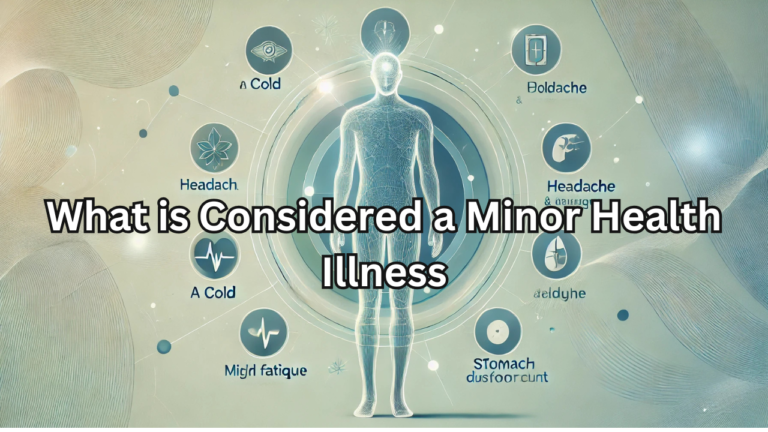

Table of Contents
Introduction:
In the world of mental health care, accurate diagnosis and treatment are essential for providing the best patient outcomes. One important aspect of mental health care management is the use of coding systems, such as HCC (Hierarchical Condition Categories). So, what is HCC in mental health? HCC is a risk-adjustment model used by healthcare providers to categorize patients based on their conditions, including mental health diagnoses. These categories help determine the level of care a patient needs and ensure that providers are compensated appropriately.
Understanding HCC coding is crucial for both healthcare professionals and patients. It plays a significant role in ensuring that mental health conditions are documented accurately, which can impact treatment plans, insurance coverage, and overall healthcare delivery. The relevance of HCC in mental health lies in its ability to reflect the complexity of a patient’s mental health status, helping to tailor care to their specific needs. Whether you are a mental health professional or a patient navigating the healthcare system, understanding how HCC coding works is essential for better care and outcomes.
What is HCC in Mental Health?
HCC, or Hierarchical Condition Categories, is a system used to categorize and code a patient’s health conditions, including mental health disorders. In the context of mental health, HCC coding helps healthcare providers assess the severity and complexity of a patient’s condition to determine appropriate care and reimbursements. This risk-adjustment model assigns specific codes to various conditions, allowing for more accurate tracking, treatment planning, and resource allocation.
When considering what is HCC depression, it’s important to note that this coding system helps identify and categorize patients with depression based on the severity and potential complications of their condition. For instance, depression can be classified under different HCC codes depending on factors like the presence of additional health issues or co-occurring conditions. This ensures that healthcare providers can tailor treatments effectively and receive appropriate compensation.
Similarly, mood disorder HCC meaning refers to how mood disorders, such as bipolar disorder or major depressive disorder, are categorized under the HCC system. These disorders are assigned specific codes based on the intensity and impact of the condition, which aids in determining the level of care needed. HCC coding helps improve the management of mood disorders by providing a comprehensive view of the patient’s overall health, guiding both medical professionals and insurers in offering the best support for the patient’s mental health needs.
Understanding HCC Coding in Medical Terms
HCC coding, or Hierarchical Condition Categories coding, is a vital part of the healthcare system used to categorize and manage a patient’s conditions. What is HCC in medical coding? In simple terms, it’s a method for risk-adjusting a patient’s health profile to reflect the severity and complexity of their conditions. This coding system is used to assess various health conditions, including chronic diseases and mental health disorders, to determine the level of care required and to ensure proper reimbursement for services rendered.
What is HCC coding used for in medical settings? It plays an essential role in insurance, billing, and patient care. Accurate HCC coding helps healthcare providers receive appropriate payments from insurance companies, especially when treating patients with multiple or complex conditions. For instance, conditions like chronic illnesses or mental health disorders are categorized under different HCC codes, which influence how care is provided and billed. Additionally, accurate coding helps in tracking a patient’s medical history, ensuring that treatment plans are tailored to their specific needs.
One of the most important aspects of HCC coding is its impact on patient care. For example, in mental health, mood disorder HCC meaning refers to how mood disorders such as depression or bipolar disorder are classified under the HCC system. Proper classification through accurate coding ensures that patients with mood disorders receive the necessary level of care, whether in terms of therapy, medications, or other treatments. HCC coding examples may include codes for conditions like schizophrenia, depression, or anxiety, each with specific categories based on severity and associated health risks.
HCC and Mood Disorders: A Closer Look
Mood disorders, such as depression and bipolar disorder, are common mental health conditions that can significantly impact a person’s quality of life. When it comes to managing these conditions in healthcare settings, HCC codes play a crucial role in ensuring accurate diagnosis, treatment, and appropriate reimbursement. Understanding mood disorder HCC meaning is essential for both healthcare providers and patients, as it helps categorize the severity and complexity of these conditions, which can vary widely from person to person.
For example, what is HCC depression? In the context of HCC coding, depression is categorized based on its severity and the presence of any co-occurring conditions. A patient with mild depression might receive a different HCC code than a patient with major depressive disorder accompanied by chronic illness or substance abuse. This distinction allows healthcare providers to accurately assess the care needed and ensures that patients receive the appropriate level of support, whether through therapy, medication, or other interventions.
Bipolar disorder, another common mood disorder, is also classified under HCC codes. It is categorized based on the frequency and intensity of mood swings, as well as the presence of any additional health concerns. By using HCC codes for mood disorders, healthcare providers can better understand the complexities of each patient’s condition and offer more personalized care. Accurate coding helps ensure that treatments are effective, resources are allocated appropriately, and insurance claims are processed efficiently.
What Does HCC Mean in a Diagnosis?
When it comes to diagnosing and treating mental health conditions, the use of HCC (Hierarchical Condition Categories) coding plays a critical role in influencing patient care and treatment outcomes. So, what does HCC mean in a diagnosis? In a medical context, HCC coding is a risk-adjustment model that categorizes a patient’s conditions based on their severity and complexity. This coding system helps healthcare providers assess the level of care required, determine reimbursement rates, and ensure that the most appropriate treatment plans are developed for each patient.
For mental health diagnoses, such as depression, anxiety, and other mood disorders, the relationship between HCC codes and the severity of the condition is significant. By assigning specific codes to these conditions, the HCC system enables healthcare providers to recognize the complexity of a patient’s mental health needs. For example, a patient with severe depression, along with co-occurring chronic health issues, will be categorized differently than someone with a mild case of depression. This differentiation allows for more accurate treatment planning and ensures that resources are allocated appropriately.
The severity of conditions like depression and anxiety can directly influence the HCC codes assigned during diagnosis. A patient with major depressive disorder might receive a higher-risk HCC code than someone with generalized anxiety disorder, signaling the need for more intensive care and management. This relationship between HCC codes and the severity of mental health conditions ensures that patients receive personalized, effective care based on their specific needs.
Key HCC Codes for Mental Health Conditions
HCC coding plays an essential role in the diagnosis and management of mental health conditions, helping healthcare providers assess the severity of a patient’s illness and allocate the appropriate level of care. There are several common HCC codes used in diagnosing mental health disorders, each corresponding to different conditions and severity levels. These codes are crucial not only for patient care but also for insurance billing and reimbursement.
Some of the most common HCC coding examples in mental health include those for mood disorders such as depression and anxiety. For example, severe major depressive disorder may be assigned a specific HCC code that reflects the complexity and intensity of the condition. A less severe case of depression, or one with fewer complicating factors, would receive a different code. Anxiety disorders, including generalized anxiety disorder and panic disorder, also have distinct HCC codes that help to indicate their severity and the impact they have on a patient’s overall health.
In addition to depression and anxiety, other mood disorders like bipolar disorder, as well as conditions like schizophrenia, are also categorized using HCC codes. For example, a patient with bipolar disorder who experiences frequent mood swings and has co-occurring physical health conditions will likely be assigned a higher-risk HCC code than someone with a less severe form of the disorder.
If you are looking for a more comprehensive understanding of HCC codes for mental health, you might want to refer to a list of HCC codes 2024 PDF. This document provides detailed codes for a wide range of conditions, including those relevant to mental health, and can be a helpful resource for healthcare providers to ensure accurate documentation and billing. These lists are regularly updated to reflect changes in medical diagnoses and coding systems, helping to keep healthcare practices in line with the latest standards.
HCC Category List and Its Role in Mental Health
The Hierarchical Condition Categories (HCC) system is essential in categorizing and managing various health conditions, including those related to mental health. Each condition is assigned to a specific HCC category based on its severity and complexity, which helps healthcare providers determine the level of care required and ensures appropriate reimbursement. In the realm of mental health, understanding the HCC category list is vital for accurate diagnosis, treatment planning, and patient management.
Mental health conditions are often grouped into several categories within the HCC system, with each category corresponding to a range of disorders. Some of the key categories relevant to mental health include mood disorders, anxiety disorders, and psychotic disorders. For instance, mood disorders such as depression and bipolar disorder are assigned specific HCC codes that reflect the severity of the condition. A patient with major depressive disorder may fall under a high-risk category, while someone with mild depression may receive a lower-risk code. Similarly, bipolar disorder is coded based on the frequency and intensity of mood episodes.
Anxiety disorders, including generalized anxiety disorder, panic disorder, and obsessive-compulsive disorder, also have their place on the HCC category list. These conditions are categorized depending on their severity and whether they coexist with other medical issues, such as chronic illnesses, which can further influence the assigned risk level.
Psychotic disorders, such as schizophrenia, are another category in the HCC system. These conditions are considered high-risk due to their chronic nature and significant impact on a patient’s overall health and fitness functionality. Patients with psychotic disorders may require more intensive treatment plans and resources, which is reflected in their HCC coding.
Understanding the HCC category list is crucial for providing better treatment and patient management. By categorizing mental health conditions based on their severity and complexity, healthcare providers can offer more personalized and effective care. This allows for better resource allocation and ensures that patients receive the level of support they need, whether through therapy, medication, or other forms of intervention. Additionally, accurate HCC coding ensures proper insurance billing and reimbursement, which is essential for the sustainability of mental health services.
HCC Coding and Its Impact on Treatment and Insurance
Accurate HCC coding plays a pivotal role in shaping treatment plans and ensuring proper insurance reimbursements for patients, particularly in the context of mental health care. What is HCC in mental health? It is a system that assigns specific codes to mental health conditions based on their severity and complexity. This coding not only helps healthcare providers understand the level of care required but also influences insurance reimbursements and the allocation of resources.
The impact of accurate HCC coding on treatment plans cannot be overstated. By categorizing mental health conditions such as depression, anxiety, or bipolar disorder according to their severity, healthcare providers can develop personalized treatment strategies that meet the specific needs of each patient. For example, a patient with severe depression may require a more intensive and long-term treatment approach, including therapy, medications, and potentially inpatient care. On the other hand, a patient with mild anxiety might benefit from a less intensive, outpatient care plan. Proper HCC coding ensures that these treatment plans are not only appropriate but also aligned with the resources available.
In addition to influencing treatment, HCC coding has a significant impact on insurance reimbursements. Insurers use HCC codes to assess the risk level associated with a patient’s condition. The more severe the condition, the higher the risk score, which typically results in higher reimbursement rates for healthcare providers. Accurate coding ensures that mental health professionals receive the appropriate compensation for the care they provide. Without proper coding, providers may be underpaid or fail to receive reimbursements that reflect the complexity of the services delivered.
Furthermore, HCC coding ensures that patients receive the correct mental health services. By using the appropriate codes, healthcare systems can ensure that patients with high-risk conditions, such as severe depression or psychosis, are prioritized and receive the necessary care without delays. This system helps prevent gaps in treatment, ensuring that all patients, regardless of the severity of their condition, get access to the support they need.
Conclusion
Understanding what is HCC in mental health is essential for both healthcare providers and patients. HCC coding, by categorizing mental health conditions based on their severity, plays a vital role in improving patient care, treatment plans, and ensuring proper reimbursement. It helps healthcare providers deliver personalized and effective care tailored to the unique needs of each patient, ensuring that those with more severe mental health conditions receive the appropriate level of support.
Accurate HCC coding also has a significant impact on insurance reimbursements, ensuring that providers are compensated fairly for the care they deliver. Without proper coding, there may be discrepancies in treatment quality and insurance payouts, leading to underfunded mental health services and potentially compromised care. By leveraging the HCC system, the mental health field can continue to advance in providing effective treatments while securing the necessary resources for optimal care.
Frequently Asked Questions (FAQs)
1. What does HCC mean in mental health?
What is HCC in Mental Health refers to a coding system known as Hierarchical Condition Categories. It categorizes mental health conditions based on their severity and complexity, helping healthcare providers determine the appropriate level of care required. This system is crucial for accurate diagnosis, treatment planning, and insurance reimbursement, ensuring that patients receive the right care for their mental health needs.
2. What does HCC mean in a diagnosis?
In a diagnosis, HCC refers to the categorization of conditions into specific codes based on their severity. These codes help healthcare providers assess the complexity of a patient’s condition, allowing for more precise treatment plans and resource allocation. For mental health, this includes disorders like depression, anxiety, and other mood disorders, which are assigned specific codes based on their severity.
3. What is the HCC code for major depression?
The HCC code for major depression typically falls under specific codes for mood disorders, with the exact code depending on the severity and additional factors like co-occurring conditions. Major depressive disorder is categorized as a high-risk condition, meaning it will likely have a higher HCC code to reflect the complexity of treatment required.
4. What does HCC stand for?
HCC stands for Hierarchical Condition Categories. It is a risk-adjustment model used to categorize patient conditions, particularly those with complex or chronic health issues, to help healthcare providers offer the appropriate level of care and ensure proper insurance reimbursements.
5. How does HCC coding affect mental health treatment?
HCC coding affects mental health treatment by enabling healthcare providers to categorize mental health conditions based on their severity. Accurate coding ensures that patients receive appropriate care for their mental health needs, whether through therapy, medication, or inpatient services. It also helps allocate resources effectively and tailor treatment plans to individual needs.
6. Why is HCC coding important in medical billing?
HCC coding is vital in medical billing because it determines the risk adjustment and reimbursement rates for healthcare providers. Accurate coding ensures that providers are compensated appropriately for the care they provide, particularly when treating patients with complex or high-risk conditions like mental health disorders. It helps prevent underpayment or discrepancies in reimbursement.
7. Are HCC codes used for all types of mental health conditions?
Yes, HCC codes are used for a wide range of mental health conditions. From mood disorders like depression and bipolar disorder to anxiety disorders and psychotic conditions, HCC coding categorizes these conditions based on their severity, influencing both treatment and insurance reimbursement.
8. What is the HCC code for anxiety disorder?
The HCC code for anxiety disorder depends on the type and severity of the condition. For example, generalized anxiety disorder or panic disorder may have specific codes reflecting the severity and complexity of the disorder. As with other mental health conditions, accurate HCC coding helps ensure the appropriate treatment and resources are allocated.






